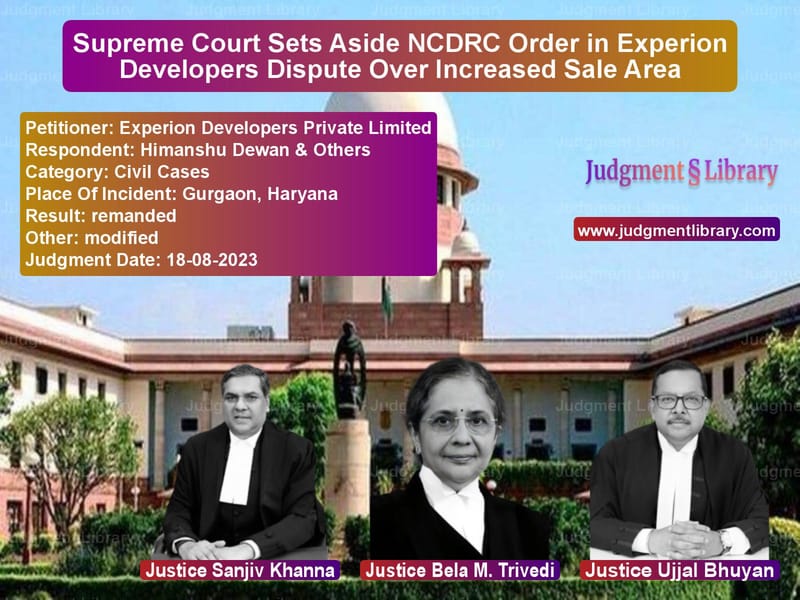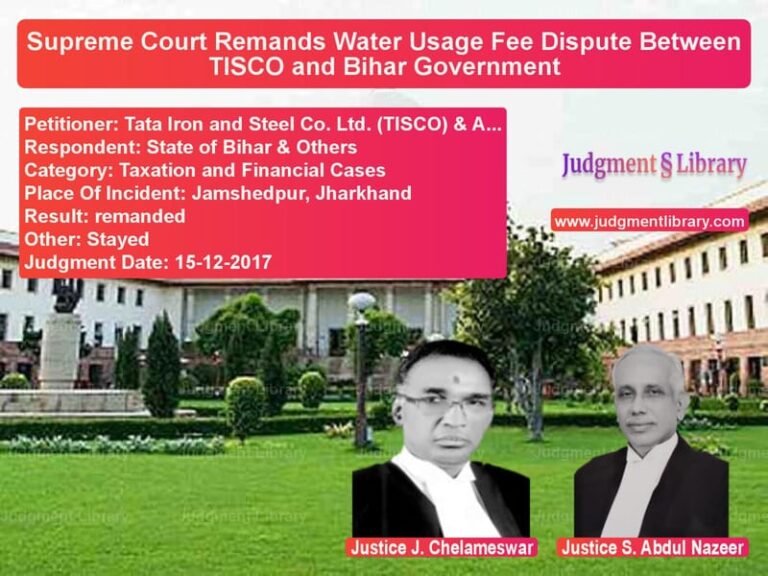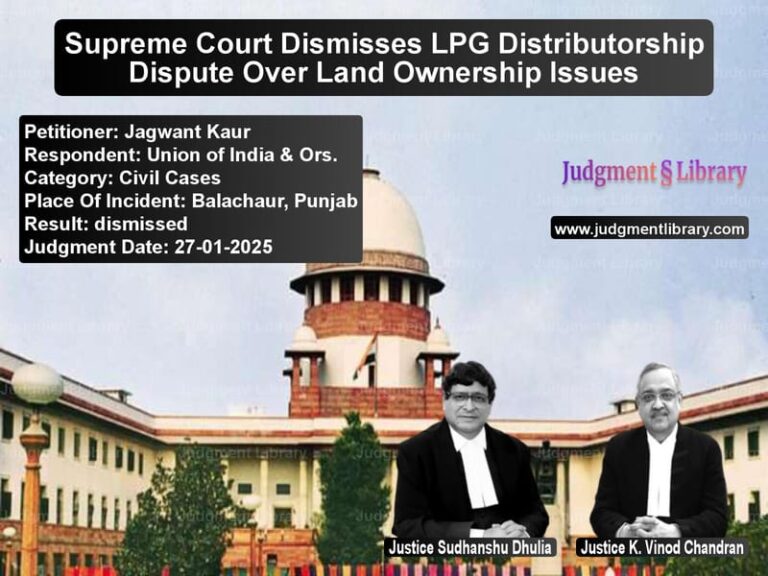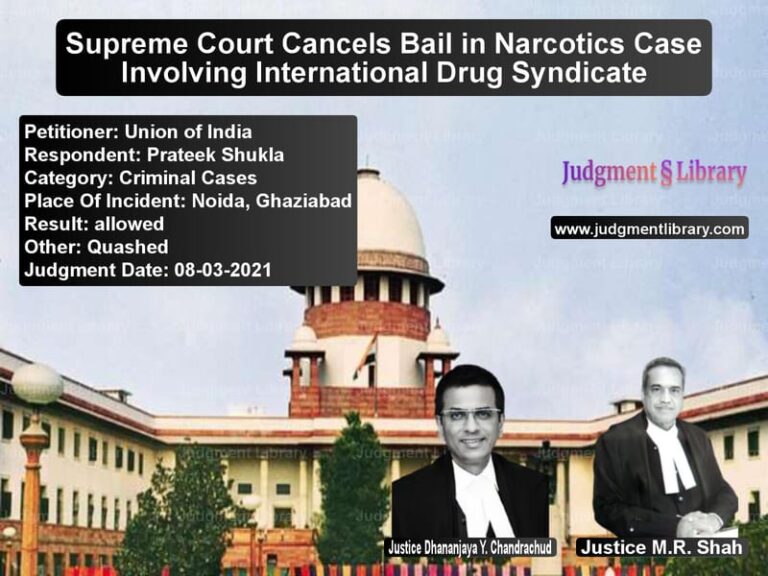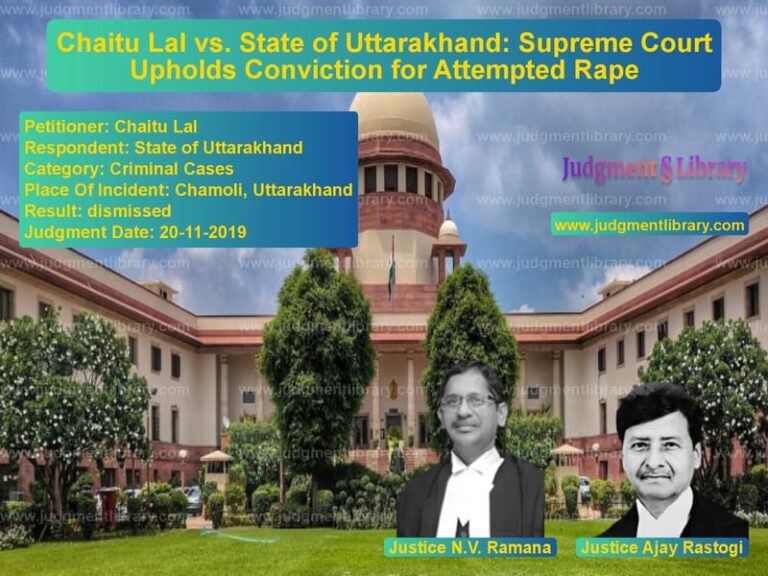Supreme Court Sets Aside NCDRC Order in Experion Developers Dispute Over Increased Sale Area
The Supreme Court of India recently delivered a crucial judgment in Experion Developers Private Limited v. Himanshu Dewan & Others, dealing with a dispute over increased sale area charges in a residential project in Gurgaon, Haryana. The case revolved around whether the real estate developer was justified in demanding additional charges for increased sale area from apartment buyers, and if the National Consumer Disputes Redressal Commission (NCDRC) correctly ruled in favor of the buyers.
Background of the Case
The appellant, Experion Developers Private Limited, developed a residential project named Windchants in Gurgaon, Haryana. The respondents were apartment buyers who purchased flats based on the terms outlined in the Apartment Buyer Agreement. The agreement contained clauses allowing for variations in the sale area, with corresponding adjustments in the total sale consideration.
Key facts of the case:
- Experion Developers informed buyers in April 2017 that their apartments had an increased sale area, resulting in additional charges.
- The buyers paid the increased charges between December 2017 and August 2018, without initial protest.
- The conveyance deeds for the apartments were executed between April 2018 and September 2019.
- In February 2022, the buyers filed a complaint before the NCDRC, claiming that there was no actual increase in the sale area and that the additional charges were unfair.
- The NCDRC ruled in favor of the buyers, directing Experion Developers to refund the excess amount and execute supplementary correction deeds.
The real estate developer challenged the NCDRC’s ruling before the Supreme Court, arguing that the buyers had voluntarily accepted the increased charges and that the claims were barred by limitation.
Key Legal Issues
- Whether the claims filed by the buyers were barred by limitation under the Consumer Protection Act, 2019.
- Whether the buyers were estopped from seeking a refund after voluntarily paying the increased sale area charges.
- Whether the NCDRC was justified in ruling against the developer without considering the justification for the increased sale area.
- The applicability of the Supreme Court’s earlier ruling in Pawan Gupta v. Experion Developers on the same issue.
Petitioner’s (Experion Developers) Arguments
- The developer had the contractual right to adjust charges for variations in the sale area, as per Clause 8 of the Apartment Buyer Agreement.
- The buyers paid the additional charges without protest at the time of conveyance, and some of them were subsequent purchasers who acquired apartments after the charges had already been paid.
- The claims were filed beyond the two-year limitation period prescribed under Section 69 of the Consumer Protection Act, 2019.
- The Supreme Court had previously ruled in favor of the developer in the Pawan Gupta case, which involved the same housing project, and that decision should have been binding on the NCDRC.
Respondent’s (Buyers) Arguments
- The increased sale area charges were imposed arbitrarily, and the buyers were not provided with any justification or calculation details.
- The NCDRC’s ruling in Pawan Gupta established that developers cannot demand increased charges without providing evidence of actual changes in the sale area.
- The limitation period should be calculated from the date of execution of the conveyance deeds, not from the date when the increased charges were first communicated.
- The COVID-19 pandemic led to the suspension of limitation periods under the Supreme Court’s suo motu orders, making the buyers’ claims timely.
Supreme Court’s Judgment
The Supreme Court set aside the NCDRC’s order and remanded the matter for reconsideration, directing the NCDRC to properly examine the developer’s justification for the increased sale area charges.
The key observations of the Court were:
- On Limitation: The Court ruled that the limitation period should be calculated from the date of execution of the conveyance deeds, and after excluding the COVID-19 suspension period, the claims were not time-barred.
- On Estoppel: The Court held that buyers could still challenge the increased charges if the payments were made without proper disclosure of calculations.
- On Transparency in Real Estate Transactions: The Court emphasized that developers must provide clear justifications for increased sale area charges, including architect certificates and calculation reports.
- On Applicability of Pawan Gupta Judgment: The Court clarified that while the earlier case involved the same project, it did not create a binding precedent that automatically applied to all buyers.
Directions Issued
- The Supreme Court remanded the case to the NCDRC for fresh adjudication.
- The NCDRC was directed to examine whether the developer had provided sufficient evidence to justify the increased sale area charges.
- The buyers were allowed to contest the increase in sale area if it was not properly substantiated.
Impact of the Judgment
This ruling has significant implications for real estate transactions and consumer rights:
- Greater Accountability for Developers: Real estate companies must justify increased sale area charges with clear evidence.
- Clarification on Limitation Period: The judgment confirms that the limitation period for consumer claims begins from the date of execution of conveyance deeds, not from the initial communication of charges.
- Consumer Protection in Real Estate: The ruling ensures that buyers have legal recourse if they believe they have been unfairly charged.
Conclusion
The Supreme Court’s decision in Experion Developers Private Limited v. Himanshu Dewan & Others reaffirms the importance of transparency in real estate transactions. By remanding the case for reconsideration, the Court has ensured that buyers have the opportunity to contest charges that they believe are unfair. This judgment is expected to have a significant impact on similar disputes in the real estate sector.
Petitioner Name: Experion Developers Private Limited.Respondent Name: Himanshu Dewan & Others.Judgment By: Justice Sanjiv Khanna, Justice Bela M. Trivedi, Justice Ujjal Bhuyan.Place Of Incident: Gurgaon, Haryana.Judgment Date: 18-08-2023.
Don’t miss out on the full details! Download the complete judgment in PDF format below and gain valuable insights instantly!
Download Judgment: experion-developers-vs-himanshu-dewan-&-oth-supreme-court-of-india-judgment-dated-18-08-2023.pdf
Directly Download Judgment: Directly download this Judgment
See all petitions in Property Disputes
See all petitions in Consumer Rights
See all petitions in Specific Performance
See all petitions in Judgment by Sanjiv Khanna
See all petitions in Judgment by Bela M. Trivedi
See all petitions in Judgment by Ujjal Bhuyan
See all petitions in Remanded
See all petitions in Modified
See all petitions in supreme court of India judgments August 2023
See all petitions in 2023 judgments
See all posts in Civil Cases Category
See all allowed petitions in Civil Cases Category
See all Dismissed petitions in Civil Cases Category
See all partially allowed petitions in Civil Cases Category

